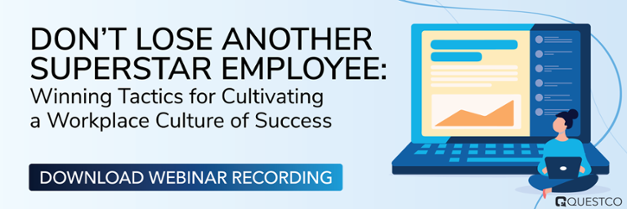Topic Diversity, Engagement, & Inclusion
5 Ways PEOs Can Support DEI Initiatives

September 15, 2022 | By Christie Obrien

You'll need more than diverse recruiting practices if you want to promote diversity, equality, and inclusion (DEI) in your workplace. According to a poll of over 6,000 working professionals, there are significant discrepancies between what companies expect and what their diverse workforce really goes through.
For example, only 30% of white managers think that their diverse workers are under pressure to modify parts of their conduct or appearance to fit with their workplace culture. Almost half of Latin American employees disagreed.
To create a DEI workplace, your HR personnel will require objectivity, knowledge, training, and support. As a result, many businesses have enlisted the help of PEOs (professional employer organizations) to ensure the success of their DEI programs.
What does Diversity, Equity, and Inclusion (DEI) mean in the workplace?
DEI refers to the policies, practices, and attitudes that support and foster a more diverse, equitable, and inclusive environment. It's about creating a workplace where everyone can feel valued, respected, and included. It promotes an atmosphere where everyone can do their best work and reach their full potential.
Diversity
In its simplest form, diversity is differences. In the workplace, diversity encompasses a wide range of characteristics, including but not limited to race, ethnicity, gender, sexual orientation, age, national origin, disability, veteran status, and religious beliefs.
Employers that concentrate entirely on employee diversity will not reap the numerous advantages that have been promoted when discussing hiring people from underrepresented backgrounds. This can only be accomplished by incorporating equity and inclusion into your company’s DNA.
Equity
While the two terms are often used interchangeably, equity and equality are actually quite different. Equality is about treating everyone equally, while equity is about ensuring everyone has the same opportunities to succeed.
Equality is often thought of as a "level playing field," where everyone starts from the same place and has the same chance to succeed. On the other hand, equity recognizes that not everyone starts from the same place and that some people may need more support to succeed.
Inclusion
Inclusion is about creating an environment where everyone feels valued, respected, and included. It's about ensuring underrepresented groups have a "seat at the table" and a voice in decision-making.
Inclusion is important because it leads to increased creativity and innovation, improved communication and collaboration, and enhanced customer service and satisfaction. In addition, a more inclusive workplace can attract and retain top talent, reduce turnover, and improve employee morale.
How can PEOs support DEI initiatives?
Successful DEI efforts provide your company with a competitive edge. Professional employer organizations may help your DEI project in a variety of ways:
1. Harassment Prevention and Diversity Training
PEOs can provide support for your DEI initiative by providing harassment prevention and diversity training. That way, PEOs prevent problems before they start and help create a supportive work environment. This training will also help add nuance to employee’s and manager’s understanding of diversity.
2. Expertise in Employee Relations
When you have a PEO in your corner, you have a team of experts available to help you with your employee relations needs – from providing support during HR investigations to reviewing and creating new, more inclusive employee handbooks. PEOs can also help you develop and implement policies and procedures that will create a more positive and productive work environment.
3. Provide Objectivity
The poll of white managers versus Latin American employees shows that management may not have a completely objective view of how far their DEI program has advanced. An outside viewpoint provides a more objective assessment of which programs, projects, and procedures seem to be performing effectively and which ones need improvement.
4. Ensure EEO Compliance
Professional employer organizations (PEOs) also support your DEI initiative by helping you ensure compliance with Equal Employment Opportunity (EEO) laws. Depending on the size of your company, different rules and regulations are enforced by the Equal Employment Opportunity Commission (EEOC). PEOs handle EEO compliance at any level, whether it's ensuring equal pay or compiling EEO-1 reports,
5. Inclusive Employee Benefits
According to studies, offering retirement benefits to employees is an effective way to narrow the racial gap in retirement savings. PEOs enable your company to access 401(k) retirement plans at a lower cost than would otherwise be achievable.
By taking into account the unique needs of your workforce, a PEO can help you create a benefits package that is both comprehensive and affordable.
DEI initiatives require leadership
While PEOs may assist with your DEI program, efforts will eventually fail if there is no executive buy-in. PEOs strive to foster the ideal corporate culture as envisioned by management. This might or might not entail a DEI initiative. PEOs can be a valuable asset in promoting diversity, equity, and inclusion in the workplace. However, these efforts depend entirely on whether you consider DEI important to your workplace.

Christie Obrien
Christie is a Human Resource Consultant specializing in employee relations, legal compliance, and recruiting.



